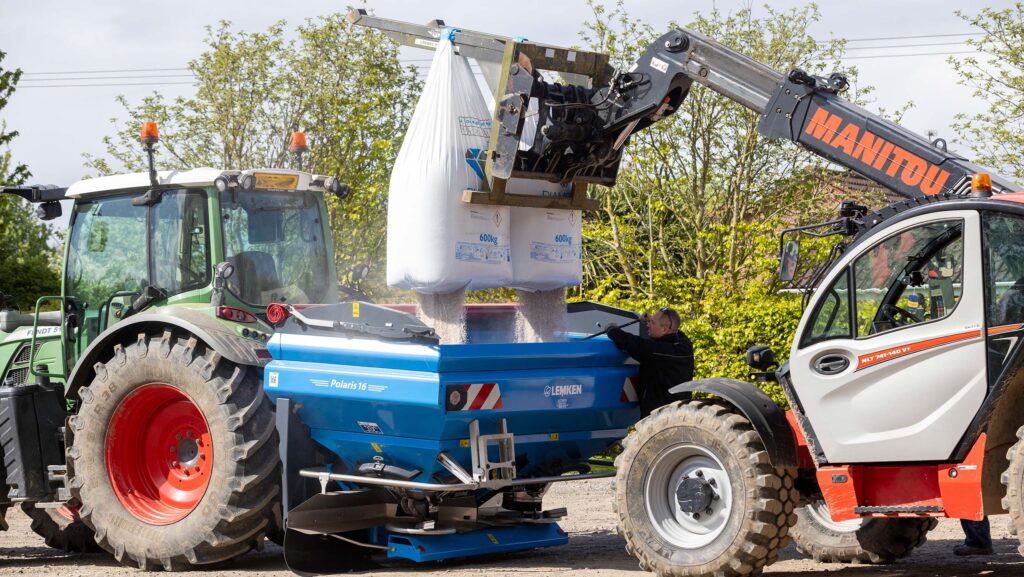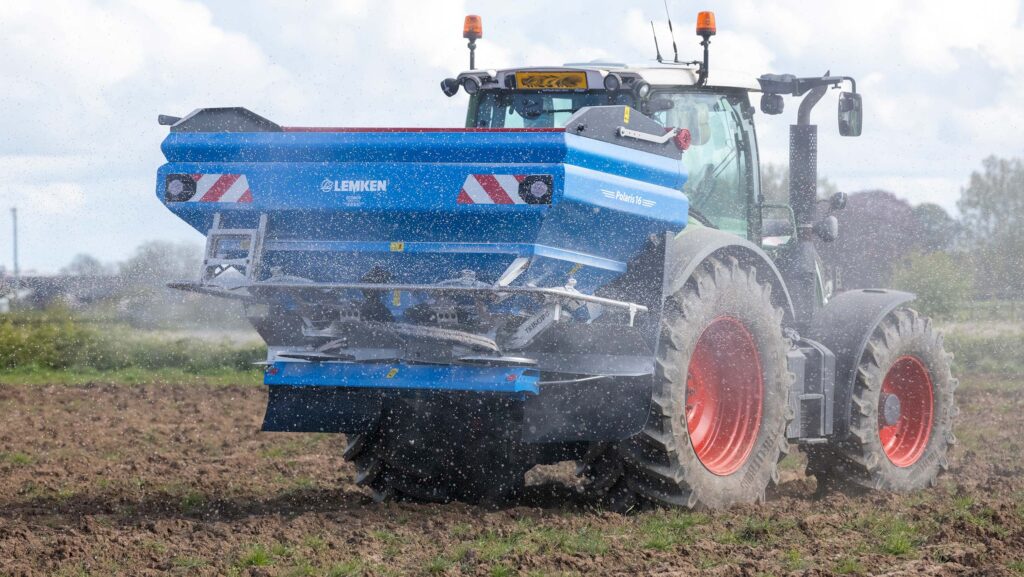Carbon tax on fertiliser due to hit farms and food prices
 Loading fertiliser spreader © GNP
Loading fertiliser spreader © GNP The fertiliser sector has warned of a severe impact if the government moves forward with plans to implement a hefty carbon tax on fertiliser from 1 January 2027.
Industry sources have suggested the tax would see fertiliser costs increase by a minimum of £50/t, affecting the whole agricultural sector and potentially leading to higher food prices.
The government confirmed its plans to introduce a UK Carbon Border Adjustment Mechanism (Cbam) from 1 January 2027 as part of the autumn Budget, following on from an industry consultation earlier in the year.
See also: EU proposes delay to deforestation regulations on feed
Treasury documents confirm that aluminium, cement, fertiliser, hydrogen and steel products would all be hit by the new import tax, but not glass or ceramics.
Following the announcement, the industry has raised major concerns around the impact of fertiliser pricing on the whole supply chain and on global competitiveness.
Lord Fuller, chairman of the liquid fertiliser importer Brineflow, told Farmers Weekly the new fertiliser tax would be hugely disruptive and would undermine the profitability of family farms.
He said there really was no justification, and the Treasury was just interested in the money.
“This is a £150m raid on farmers who will find it very difficult to pass that cost on through increased grain sales as they are traded on global markets,” he said.

© GNP
Lord Fuller added that the whole objective of the policy was to prevent carbon leakage, but this didn’t take into account the fact that only a very small fraction of fertiliser was still produced in the UK, and the vast majority of what was produced used imported ammonia.
“The way the government intends to tax this on a flat-rate basis would be really problematic, as it incentivises the use of the most pollutive fertilisers and would mean the world’s most polluting production facilities would compete on equal terms,” he said.
“The Treasury is trying to incentivise the use of urea while Defra is trying to eliminate its use.”
It is understood the tax could be in the region of £50/t to £75/t and would be expected to be paid quarterly in arrears, which could cause further complications for farm businesses operating on an annual basis.
Unlevel playing field
A similar carbon tax is being considered in the EU; however, this is due to be phased in rather than being fully applied from 1 January 2027, meaning the UK will operate at a competitive disadvantage for a number of years.
European Parliament legislative briefing documents indicate that the proposed timeline would be to implement 5% of the tax in 2027 and 10% in 2028. Further annual increases would follow, and it would only be fully implemented from 2034 onwards.
Michael Pater, managing director at Origin Soil Nutrition (formerly Origin Fertilisers), said if Cbam came in, there would be a significant increase in the cost of fertiliser in the UK.
He said fertiliser imports helped to keep input prices down, but under Cbam a tax would be levied on all those imports.
“If you are producing around 2.5t to 3t of carbon for every tonne of urea produced, if the cost per tonne of carbon is £50/t, then potentially it is £150/t on top of the price of urea,” he said.
“What you are then doing is lifting that bar across products, so urea cost per unit is the most competitive to nitrogen.”
Mr Pater said in the first two years following implementation of Cbam the UK would be at a 90% disadvantage compared with the EU.
